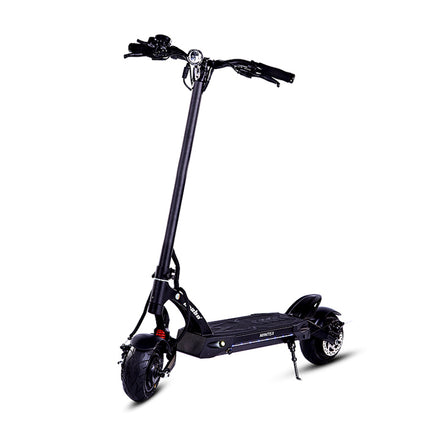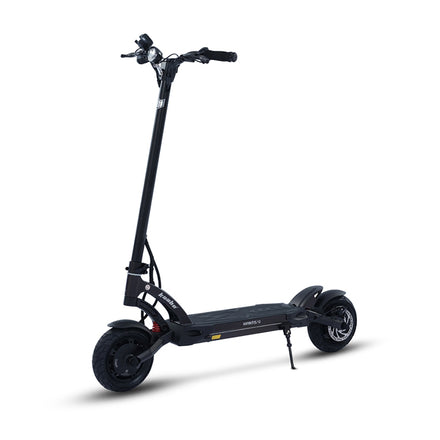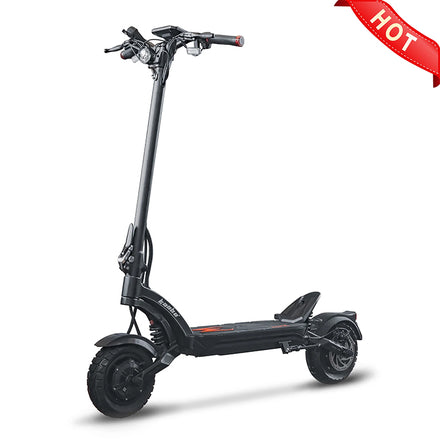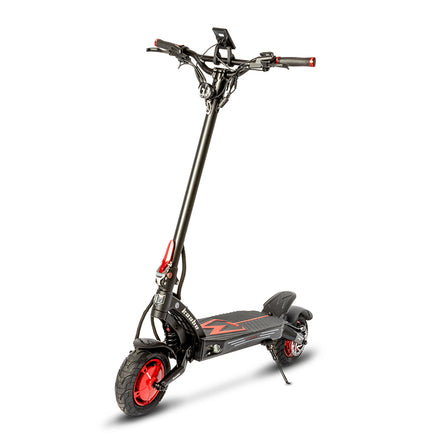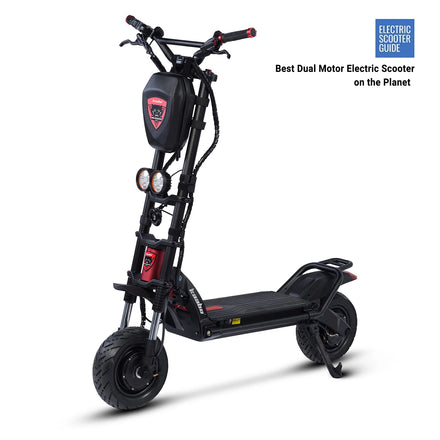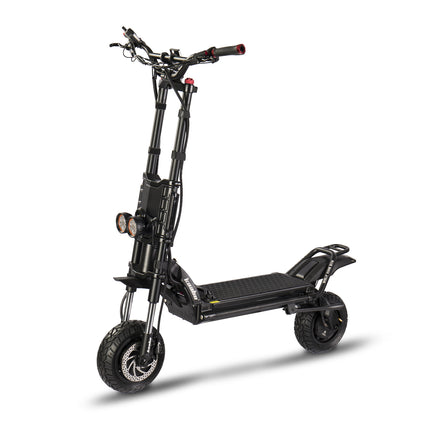The Economic Advantages of Owning an Electric Scooter: What You Need to Know
Electric scooters are quickly becoming a popular mode of transportation, and for good reason. Not only are they fun and easy to ride, but they also offer numerous economic benefits. From reducing transportation costs to contributing to a greener planet, owning an electric scooter can be a game-changer for your wallet and the environment.
Introduction
In today's fast-paced world, finding cost-effective and efficient means of transportation is crucial. Electric scooters have emerged as a viable alternative to traditional vehicles, providing a blend of affordability, convenience, and eco-friendliness. This article delves into the economic advantages of owning an electric scooter, highlighting why it's a smart investment for both your finances and the planet.
Cost Savings on Fuel
One of the most significant economic advantages of owning an electric scooter is the substantial savings on fuel. Traditional gasoline-powered vehicles are expensive to operate, especially with fluctuating fuel prices. Electric scooters, on the other hand, run on electricity, which is significantly cheaper.
Comparative Cost Analysis
Let's break down the costs:
- Gasoline Vehicle: On average, the cost of gasoline can range from $2 to $4 per gallon. Assuming a vehicle has a fuel efficiency of 25 miles per gallon and you drive 15,000 miles a year, you're looking at an annual fuel cost of $1,200 to $2,400.
- Electric Scooter: Charging an electric scooter is far more affordable. On average, it costs about $0.12 per kilowatt-hour (kWh) of electricity. If an electric scooter has a battery capacity of 2 kWh and a range of 50 miles, the cost per mile is approximately $0.0048. For 15,000 miles, the annual cost is around $72.
The difference is striking. By switching to an electric scooter, you can save over $1,000 annually on fuel alone.
Lower Maintenance Costs
Electric scooters have fewer moving parts compared to gasoline-powered vehicles, which translates to lower maintenance costs. There are no oil changes, spark plugs, or complex transmission systems to worry about.
Common Maintenance Costs
Consider these typical maintenance expenses for a car:
- Oil Changes: $50 per change, four times a year = $200
- Brake Pads: $150 per set, once a year = $150
- Transmission Fluid: $100 per service, once a year = $100
Total annual maintenance costs for a car can easily exceed $500. In contrast, electric scooters primarily require routine checks and occasional tire changes, costing around $100 per year.
Insurance Savings
Insuring an electric scooter is generally much cheaper than insuring a car. Car insurance can cost anywhere from $1,000 to $2,000 annually, depending on various factors such as age, driving history, and location. In comparison, electric scooter insurance is much more affordable, often costing less than $200 per year.
Tax Incentives and Rebates
Governments worldwide are encouraging the adoption of electric vehicles by offering various tax incentives and rebates. These financial incentives can significantly reduce the initial purchase price of an electric scooter.
For instance:
- Federal Tax Credit: In some countries, you can receive a federal tax credit for purchasing an electric scooter, which can be as much as 10% of the purchase price.
- State and Local Rebates: Many states and municipalities offer additional rebates, which can range from $100 to $500.
Environmental Benefits Leading to Economic Gains
While the direct financial benefits are clear, owning an electric scooter also contributes to broader economic advantages through its positive environmental impact.
Reduced Carbon Footprint
Electric scooters produce zero emissions, significantly lowering your carbon footprint. This reduction in greenhouse gases can lead to fewer environmental taxes and lower costs associated with pollution control.
Health Cost Savings
Air pollution from gasoline-powered vehicles is a major public health issue, leading to respiratory diseases and other health problems. By reducing pollution, electric scooters contribute to lower healthcare costs at the societal level.
Efficiency and Convenience
Electric scooters offer unmatched efficiency and convenience, making them an ideal transportation solution for urban environments.
Ease of Parking
Parking in cities can be a nightmare, often leading to hefty parking fees. Electric scooters require much less space and can often be parked for free in designated areas. This convenience translates to substantial savings over time.
Time Savings
Electric scooters can maneuver through traffic with ease, reducing commute times. This efficiency can enhance productivity and save valuable time, which is an often-overlooked economic benefit.
Longevity and Durability
Modern electric scooters are built to last, with high-quality materials and advanced technology ensuring longevity and durability. The initial investment in a reliable electric scooter can pay off in the long run as they require fewer replacements and repairs compared to traditional vehicles.
Conclusion
In conclusion, the economic advantages of owning an electric scooter are multifaceted. From substantial savings on fuel and maintenance to insurance and tax incentives, the financial benefits are clear. Moreover, the environmental and health benefits contribute to broader economic gains. Investing in an electric scooter is not just a smart financial decision but also a step towards a sustainable future.
FAQ
1. Are electric scooters really cost-effective in the long run?
Yes, electric scooters are highly cost-effective in the long run due to lower fuel, maintenance, and insurance costs. Additionally, many governments offer tax incentives that further reduce the overall cost.
2. How often do electric scooters need maintenance?
Electric scooters require minimal maintenance. Regular checks and occasional tire changes are typically all that's needed, making them much cheaper to maintain compared to gasoline-powered vehicles.
3. What are the environmental benefits of using an electric scooter?
Electric scooters produce zero emissions, reducing air pollution and contributing to a smaller carbon footprint. This can lead to broader environmental and health cost savings.
4. Can I get any financial incentives for purchasing an electric scooter?
Yes, many governments offer tax credits and rebates for purchasing electric scooters, which can significantly reduce the initial purchase price.
5. How long do electric scooters last?
With proper care and maintenance, modern electric scooters can last several years, thanks to their durable build and high-quality materials.
For more detailed information and to explore our range of electric scooters, visit Kaabousa.com.
Lastest Blog Post






Related Product
Newletter
Promotions, new products and sales. Directly to your inbox.


